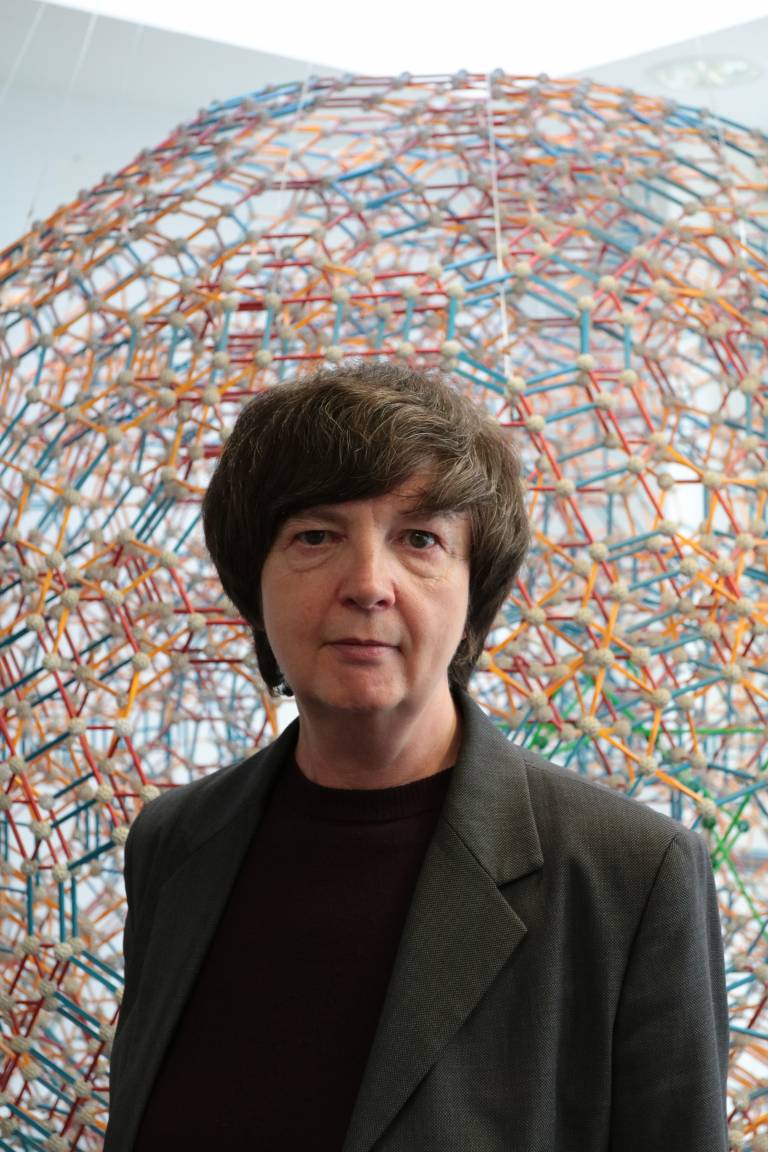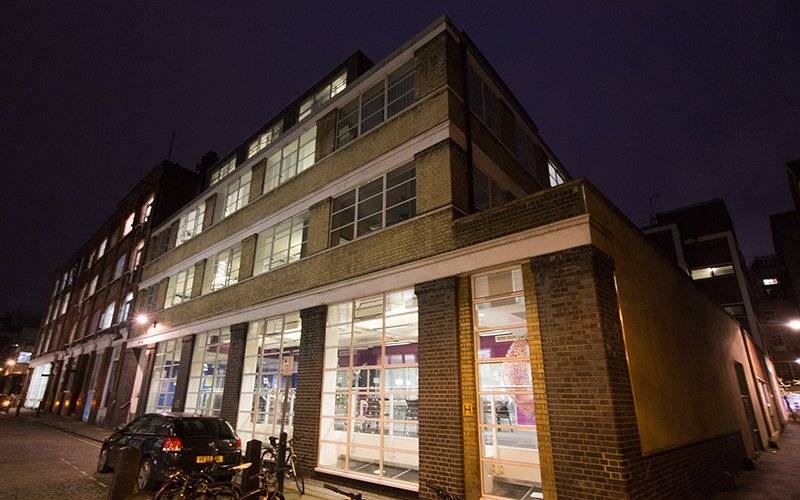Allison is a Professor of Learning Technology and Director of the UCL Knowledge Lab.
What attracted you to take up your position at IOE?
The people, the place and the reputation of IOE and UCL. The UCL Knowledge Lab is a world-leading research centre exploring technology and society. The job is all about people and I really enjoy working with Lab colleagues who are making such a positive difference to the world through their research, teaching and enterprise work.
How long have you been at IOE?
I joined IOE in January 2020, just weeks before the pandemic and lockdown. Previously I was Dean (Learning and Teaching) in the College of Social Sciences at the University of Glasgow. I held responsibility for around 9,000 students from about 100 different countries. That was a privilege and I will forever remember how wonderful it was to work with students and colleagues there. I also was Academic Director for Digital Innovation at the Open University, which was a fascinating role.
What do you most enjoy about your position and why?
I enjoy working with talented people who want to make a difference to the world. Lab colleagues are positively addressing issues of social justice related to knowledge, media, technology and society. I learn something new from them almost daily.
I also enjoy the other role I have within UCL as Chair of the UCL Digital Research Group – the group that oversees strategic funding for High Performance Computing for data intensive research across UCL. This work brings me into contact with colleagues from every faculty.
“I’m always amazed at the breadth and depth of research across UCL.
And of course, I enjoy making a difference to the world through my own research, which has influenced the ways professionals learn across diverse sectors including Health, Energy, International Development and Education.
What working achievement or initiative are you most proud of?
Helping UCL adapt our policy during the recent Covid-19 pandemic. I had just started work at UCL when the first lockdown began. I suggested to then IOE Interim Director, Professor Sue Rodgers, that we could monitor how colleagues adjusted to working online from home to help inform UCL policy. Along with my colleague Martin Oliver and with Lesley Gourlay and other colleagues from the Lab, I set up ‘Moving to Online Teaching and Homeworking’ (MOTH).
The project examined how UCL academic and professional staff adapted to the challenges posed by COVID-19 pandemic in the early days of lockdown in 2020.
“It provided a rapid review process to help UCL emergency committees to make policy decisions to support staff wellbeing as people adjusted to working from home and moving to online teaching and research.
What is the focus of your research? What benefits do you hope your discoveries and insights will bring?
My research examines the ways digital technologies are changing the ways people work, learn and build knowledge. These changes disrupt jobs while, at the same time, they open up opportunities for professionals to learn in new ways.
“My research provides evidence of the ways professionals adapt to these changes and learn new ways of working.
Organisations tend to support professionals to learn by providing courses and training, sometimes scaled through digital technologies and AI systems.
My research also provides evidence that work and learning is influenced by the environment and the roles and division of labour that bring people together. This means that formal training is not sufficient to support transformation and that technology tools have to be designed in ways that scaffold different forms of agency, such as reflecting on how the work environment could be reconfigured or identifying new roles that are needed. My work has developed ToolKits to support people in the Health sector and the Energy sector to rethink how they work.
I teach students and, at the same time, I learn from them. Understanding that learning is always a two-way process is important.
“I teach students and, at the same time, I learn from them. Understanding that learning is always a two-way process is important.I teach students and, at the same time, I learn from them. Understanding that learning is always a two-way process is important.I teach students and, at the same time, I learn from them. Understanding that learning is always a two-way process is important.
What's the most important thing you've learned from your students about the subjects you teach?
This is a difficult question to answer because I’ve learned so much through interacting with students. I think the main lesson is that learning is a two-way process. I teach students and, at the same time, I learn from them. Understanding that learning is always a two-way process is important.
Do you think being in London and/or at UCL benefits your work and why?
Working in London has numerous benefits.
“First, I love the diversity of people I work with on a daily basis. Each person brings unique insights and knowledge to the questions we raise as academics and the problems we all face as a society. There are few places in the world as diverse as London.
Second, the location of UCL’s campus in London’s ‘knowledge cluster’ gives us unrivalled face-to-face access to some of the world’s leading organisations such as the British Museum, the British Library, Wellcome, the Crick, Google, the Royal Academy for Dramatic Arts, the British Film Institute, the British Medical Association as well as a number of other leading universities. This location allows us to foster the sorts of relationships that are essential for our collaborative work.
Third, we are close to the UK Parliament, which puts us in a good position to be able to influence policy. It is such a privilege to work here.
What other subject outside of your area of specialism interests you?
I tend to be fascinated by almost any occupation, which is helpful in my research exploring how different specialisms evolve. Chemistry is close to my heart. My original discipline and PhD is in crystallography, and I’m fascinated by the ways scientists from diverse disciplines coalesce and collaborate around some of the world’s biggest challenges.
What might it surprise people to know about you?
For my PhD, I experimented with rocket propellants and explosives.
“I had to drive a car from my university to the synchrotron facility where I carried out my experiments because it was (and still is) illegal to carry explosives on the train.
Is there anything else you would like to add about your experiences at UCL or IOE?
Universities are becoming an increasingly important resource to solve some of the world’s most pressing problems, such as our role during the Covid-19 pandemic and research on its impacts. Yet, current and future economic shocks mean that universities are likely to face a difficult future. We all need to find ways to adjust to an ever-changing future and I’d like to continue working with IOE and UCL to help us adapt.
Last updated 27 July 2023.
 Close
Close



